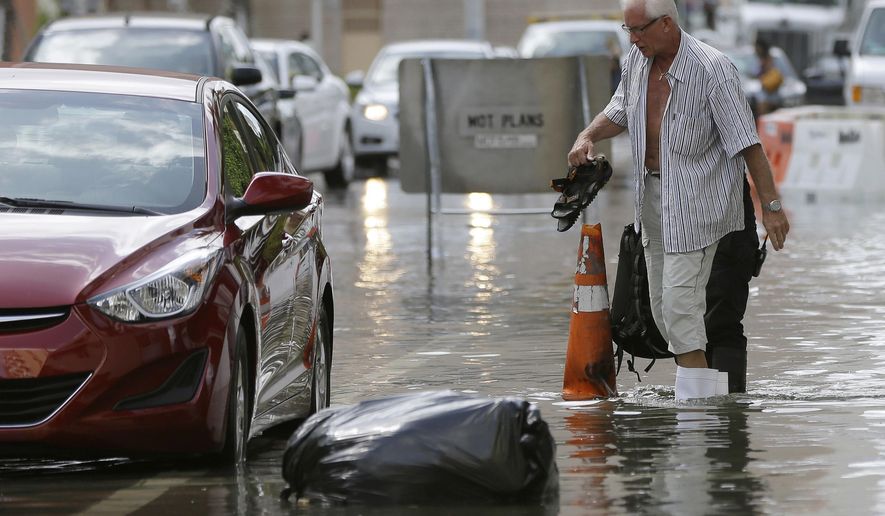A collection of nearly half of the country’s doctors and medical professionals is “sounding the alarm” that climate change is a danger to the health of Americans.
The Medical Society Consortium on Climate & Health officially launched this week in D.C., the same day President Trump announced his budget proposal that cut funding for the Environmental Protection Agency by a third and reduced its staff by 3,200 positions.
The purpose of the consortium — which is comprised of 11 medical societies and represents 430,000 medical professionals across the U.S. — is to advocate for policy that combats climate change in the interest of general health.
“Climate change has become very real for the health of our patients,” Dr. Mona Sarfaty, the director of the organization, said at its opening event Wednesday. “Beginning today, American physicians are starting a conversation with the public and the nations leaders about what’s really at stake with climate change, our health.”
Dr. Sarfaty said that ailments and diseases across the country can be traced back to environmental conditions spurred by climate change.
“The most important action we can take is to increase our use of energy efficiency and speed the inevitable transition to clean, renewable energy,” she said.
Dr. Nitin Damle, president of American College of Physicians, joined the conference via Skype from his home in Rhode Island, his travel plans interrupted by a snowstorm that hit the East Coast this week. Most pressing for the doctor is the increase in tick-borne illnesses, such as Lyme disease, anaplasmosis and ehrlichiosis, among others.
“In particular I’m seeing about 4-5 cases per week really of Lyme disease in the warmer months and really extending even into the spring and into the winter season,” Dr. Damle said.
The Centers for Disease Control and Prevention says about 300,000 people in the US are diagnosed with lyme disease each year.
Dr. Damle also warns of an increase in other mosquito-borne virus’s such as dengue fever, chikungunya and Zika.
“We’re even possibly going to see the spread of malaria, back to at least the North East by mid-century,” he said.” Something we haven’t seen since the 1860s.”
The group named six factors that have an adverse effect on human health: extreme heat, extreme weather, air pollution, ticks and mosquitoes, contaminated water and contaminated food.
Their stance is to promote and advocate for the transition to clean renewable energy, taking steps to reduce carbon pollution. They align themselves with the 2015 Lancet Commission on Health and Climate Change, which outlines international policy changes that roll back climate change and promote healthier living standards.
“The sooner we take action, the more harm we can prevent and the more we can protect the health of all Americans,” they wrote in their debut publication, “Climate Change Is Harming Our Health.”
Last week, EPA chief Scott Pruitt drew rebuke from scientists and advocates when he said there is a “tremendous disagreement” on the impact humans have on climate change.
“I believe that measuring, with precision, human activity on the climate is something very challenging to do, and there’s tremendous disagreement about the degree of impact,” Mr. Pruitt told CNBC’s Joe Kernen. “So, no, I would not agree that it’s a primary contributor to the global warming that we see.”
The EPA’s website states “Since the Industrial Revolution began around 1750, human activities have contributed substantially to climate change by adding CO2 and other heat-trapping gases to the atmosphere.”
• Laura Kelly can be reached at lkelly@washingtontimes.com.




Please read our comment policy before commenting.